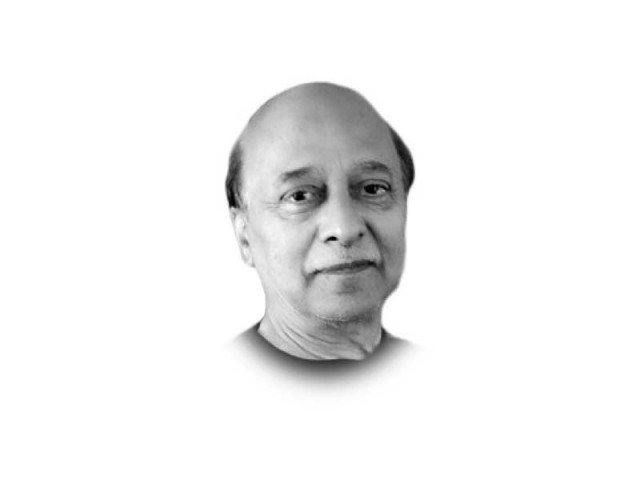Don’t criminalise ethnicity lest…
Pashtoons and the word ‘Tehreek’ are being demonised for political capital by the incumbent government

Something potentially divisive and intrinsically evil is – yet again – creeping into the already bruised soul of Pakistan: i.e. racial profiling and ethnicisation of political opponents.
Through a concerted conscious campaign, Pashtoons and the word ‘Tehreek’ are being demonised for political capital by the incumbent government. It is not just the political opponents of the PTI, but an entire brigade of party propagandists, disguised media-persons, commercial advertisers and intellectuals are consciously peddling the theme that is singling out PTI as an “organisation linked to terrorist groups”.
An interview, tweeted by Maryam Nawaz, by two purported residents of Zaman Park, was one of the so many disturbing examples of this narrative. The two ladies – which social media handles later claimed belonged to Dharampura, sounded contemptuous when asked about the identity of people forced out of the Zaman Park in the March 18 operation. “They spoke Pashto, were Pathans, looked like (members of) Taliban, sent by Ghundapur (Ali Ameen Gandapur of PTI).”
Another young boy from Batagram caught in Islamabad the same day near the Judicial Complex underwent similar disparaging treatment by a policeman, himself a Pashtoon. “Who are you and why did you come here?” asked the policeman while holding the young man’s trouser.
It all seems to be part of a pattern set in motion by Maryam Nawaz. “Treat Imran Khan as a terrorist and ban the PTI for harbouring terrorists at Zaman Park,” she said while talking to media-persons on the day the former prime minister was to appear at a court in Islamabad’s Judicial Complex. The subject of racial profiling of PTI supporters is resonating in speeches and statements of other N-League stalwarts, as well as Sharjeel Memon of PPP, apparently tasked to daily malign Imran Khan.
Even more dangerous and divisive to this context is the reported consideration that the PTI might be banned for alleged “terrorist links”.
The explosive situation merits a few basic questions:
Is the ethnic metaphor for opposition being invoked for the first time in Pakistan’s chequered political history? Certainly not; Bengalis, Baloch and Pashtoons have endured this slur on different occasions. The Bengalis endured racial discrimination and political marginalisation long ago and this served as the oxygen to the Awami League for the run-up to the creation of Bangladesh.
The short-sighted continued to rule the roost immediately after the fall of Dhaka. Anwar Mehmood, a former bureaucrat of repute, recalls that some of his under-training Bengali colleagues in Karachi were isolated immediately, their stipends halved and they were put up in separate hostels.
The Baloch tribes have been going through this ostracisation for decade. But, the mainstream media – writers, anchors – seems to be unbothered about the consequences of such risky approach, despite an unpleasant historical experiences: the journey from Dhaka students to members of Awami League and Mukti Bahini. Let us also not forget how the Mohajir Students Organisation was morphed into the dreaded MQM of the 1990s in Karachi. The discontent and its consequences in Balochistan are manifest all over, and yet the deafening silence in the mainstream media and within the human rights community over the possible explosive and grave consequences of ethnic profiling and criminalisation of those belonging to a particular group.
Remember how the Pashtoon Tahafuz Movement (PTM) was branded when it surfaced with demands that are constitutionally hard to push aside.
Secondly, why equate or link the PTI to terrorist groups by using the word ‘Tehreek’ as an analogy among all of them? By the way the PTM also carries the same surname (movement). The criteria being used to peddle such demands is at best parochial if not motivated and driven by contempt for a party and its chief.
These insinuations may suit the ruling coalition; but, for the future, actively promoting racial profiling in the political discourse is likely to sow more hatred and discontent among the Federating units.
Thirdly, where are those rights’ defenders who had all tirelessly risen and spoken in support of PTM? They spoke in favour of PTM because the group represented deep-seated grievances of the Pashtoon tribes in Waziristan in particular.
Fourth, where are all those who wailed and bemoaned the execution of Zulfikar Ali Bhutto, condemned persecution of late Benazir Bhutto and have been critical of the suppression of Baloch dissent? They did so because lives and missions of leaders from Sindh and Balochistan matter to us all.
Fifth, will attempts to liken Imran Khan to Hitler (by Ahsan Iqbal on March 20) or to a terrorist (by Maryam, Rana Sanaullah, Talal Chaudhry, Sharjel Memon, etc) really serve the cause of political stability and deepening of democracy in Pakistan?
Ethnic profiling, racial discrimination and motivated ethnic metaphor for citizens from a certain part of the country hardly portend any positivity in an air filled with anger and frustration. The glue for a federation is inclusion, justice and constitutionally equitable treatment to all citizens – regardless of cast, creed or ethnicity. Let us not ignite more fires or deepen divisions in an already volatile and polarised Pakistan. Avoiding shortsighted and parochial politics is all the more imperative in the face of challenges thrown up by the record inflation, epic economic crisis and the ensuing security-related challenges.
Fissiparous politics, combined with the ongoing economic meltdown, is the surest way for the political breakdown of a Federation.
Published in The Express Tribune, March 24th, 2023.
Like Opinion & Editorial on Facebook, follow @ETOpEd on Twitter to receive all updates on all our daily pieces.












COMMENTS
Comments are moderated and generally will be posted if they are on-topic and not abusive.
For more information, please see our Comments FAQ